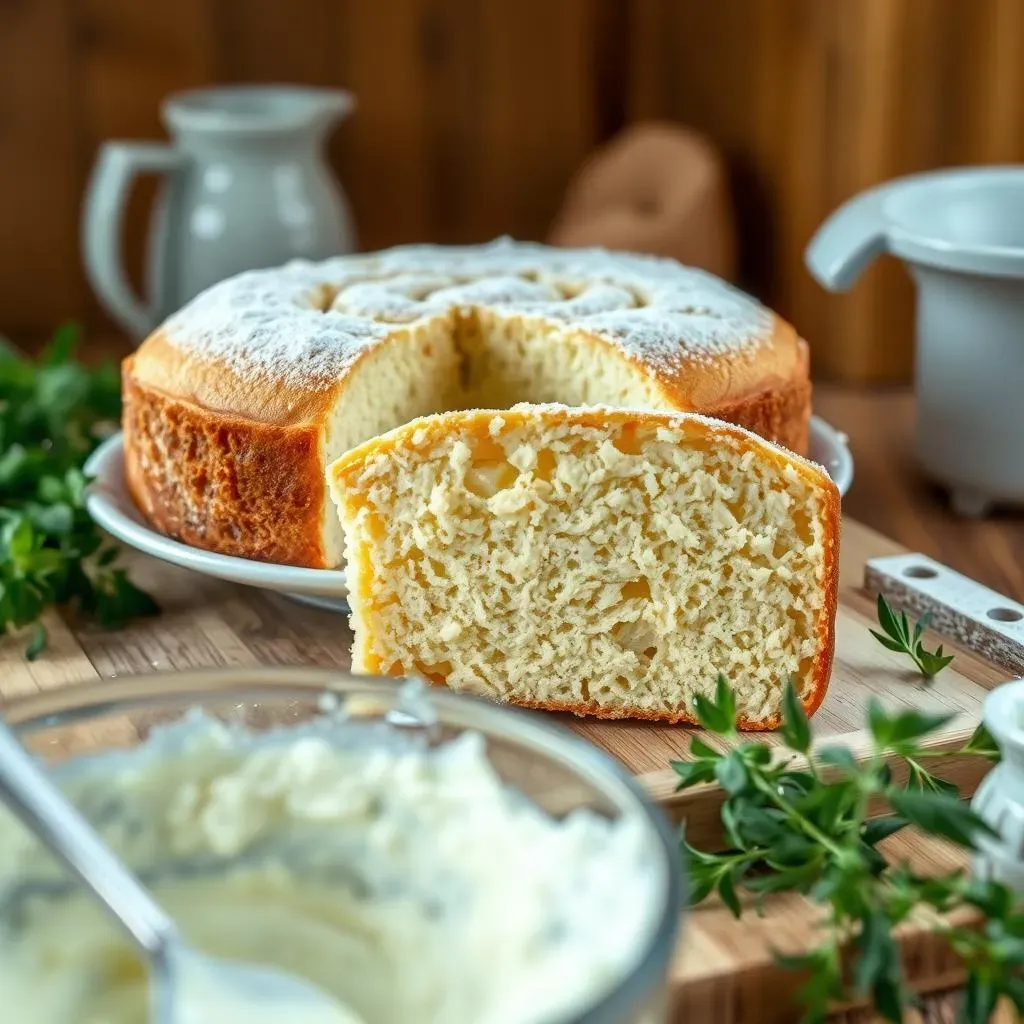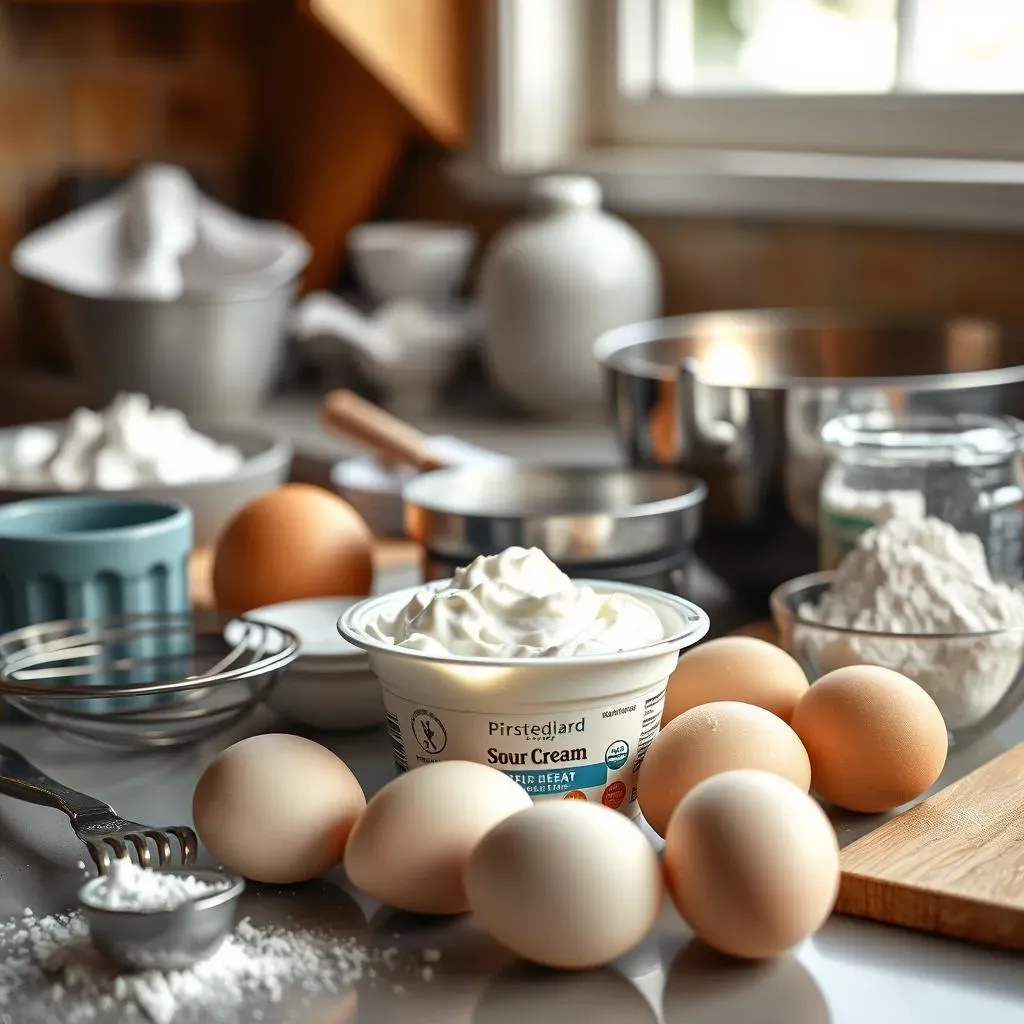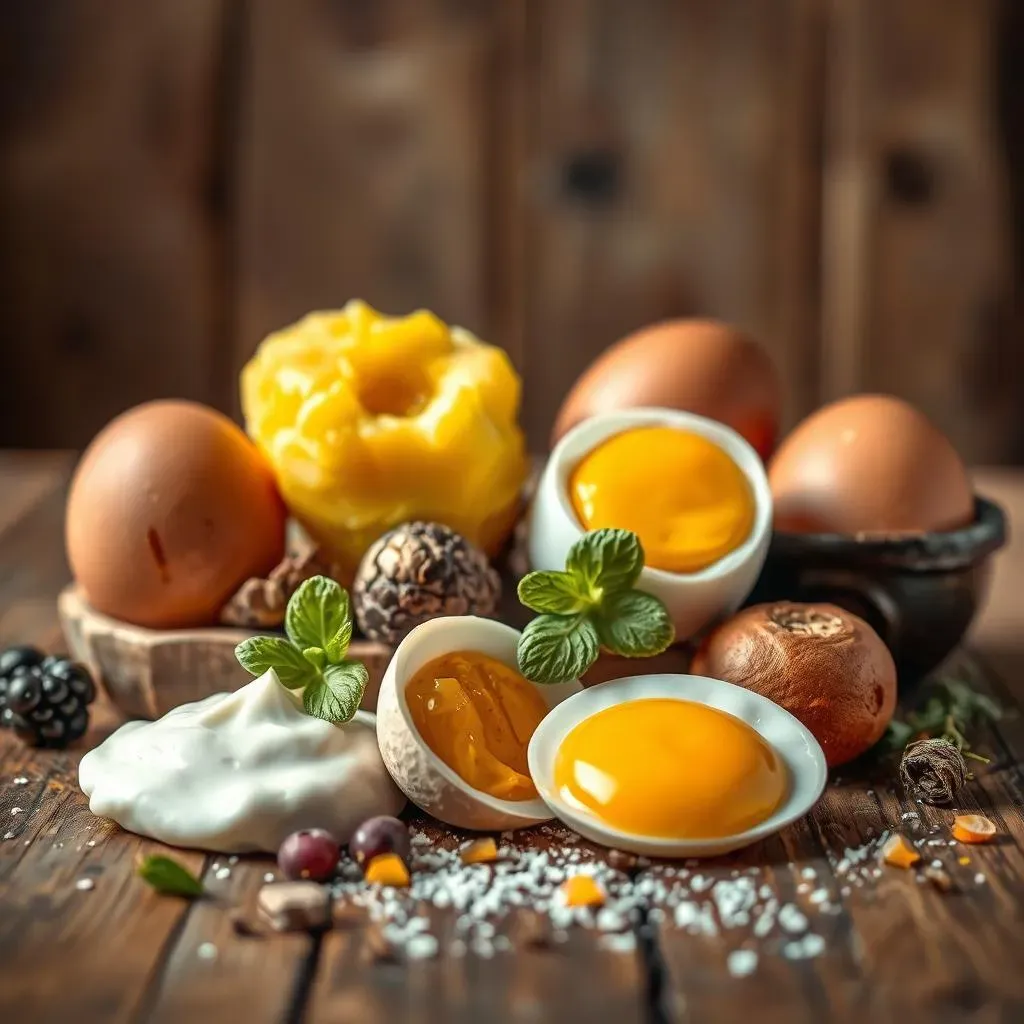Table of Contents
Ever found yourself mid-recipe, staring blankly into the fridge, realizing you're out of eggs? It's a kitchen crisis we've all faced. But what if I told you that a humble tub of sour cream could be your secret weapon? Yes, you heard right! Sour cream isn't just for tacos; it's a surprisingly effective "sour cream egg substitute" in many baking recipes. We're not talking about replacing eggs in a frittata, but for those cakes, cookies, and quick breads, it can work wonders. This article will explore why sour cream makes a great stand-in, how to use it correctly, and what other options you have when you're in a pinch. We'll go over the science behind it, discuss the best ways to swap it in, and even touch on some other egg-free alternatives. Get ready to unlock a new level of baking flexibility and say goodbye to those last-minute egg runs!
Why Sour Cream Works as an Egg Substitute

Why Sour Cream Works as an Egg Substitute
The Magic of Dairy
Okay, so you might be thinking, "Sour cream? Really?". I get it, it sounds weird. But hear me out. Eggs aren't just there for the taste; they do a lot of heavy lifting in baking. They bind ingredients, add moisture, and help things rise. Sour cream, surprisingly, can mimic some of these roles. It's all thanks to the lactose (that's milk sugar) and casein (that's milk protein) in it. These components help create a cohesive mixture, preventing your baked goods from crumbling into a sad mess. Think of it like the glue that holds everything together, not quite as strong as eggs but certainly doing a decent job.
Fat and Moisture Content
Beyond binding, sour cream's high fat content is another key player. It adds richness and keeps your baked goods moist, which is super important. Nobody likes a dry, crumbly cake! The fat coats the flour, preventing gluten from overdeveloping, which can lead to a tough texture. When you use sour cream, you're not just replacing the egg; you're also adding a little extra something that contributes to a better end result. It's like a double win - you're binding and moisturizing all in one go. It's a bit like adding a secret ingredient that no one expects but everyone loves.
Egg Function | Sour Cream Equivalent |
|---|---|
Binding | Lactose and Casein |
Moisture | High Fat Content |
Rise | Not a Direct Replacement but helps with softness |
Not a Perfect Match, But a Good Stand-In
Let's be real, sour cream isn't a perfect one-to-one swap for eggs. It doesn’t provide the same lift that eggs do, so it’s not ideal for recipes where eggs are the star, like soufflés or meringues. But for things like cakes, muffins, cookies, and quick breads, it’s a pretty awesome substitute. It gives a lovely, tender crumb and a slightly tangy flavor, which can actually enhance some recipes. If you need a substitute fast, then sour cream is your best friend. It's that reliable friend that always comes through when you need them most. It's not perfect, but it's pretty darn good.
Sour Cream Egg Substitute: Tips and Tricks

Sour Cream Egg Substitute: Tips and Tricks
Alright, so you're ready to swap out eggs for sour cream, awesome! But before you go wild, let's talk a little strategy. First, remember that 1 ½ tablespoons of sour cream is roughly equal to one large egg. It's not an exact science, but it’s a good starting point. If you are using a recipe that calls for multiple eggs, you might not want to replace all of them with sour cream. I'd recommend starting with substituting one or two to see how it affects the final product. You can also use a little extra baking powder to help with the rise since sour cream won't give the same lift as eggs. It’s about finding the right balance for your specific recipe, like a scientist in the kitchen, but with less lab coats and more delicious results.
Another key thing is to consider the type of recipe. For something like a dense chocolate cake, sour cream is a superstar. It will make it extra moist and fudgy. But if you are baking something light and airy, like a sponge cake, you might want to use half sour cream and half another substitute, like applesauce. Also, remember that full-fat sour cream is the best for baking, since the fat content is what makes it a good sub. Low-fat or fat-free versions might not give you the same results. Think of it like choosing the right tool for the job, using full-fat sour cream is like bringing a heavy-duty drill when you need it, not a tiny screw driver.
- Start Small: Replace 1 or 2 eggs first.
- Baking Powder: Add a touch more for extra lift.
- Full Fat: Choose full-fat sour cream for best results.
- Recipe Type: Consider the recipe's texture; dense vs. light.
Beyond Sour Cream: Other Egg Substitute Options

Beyond Sour Cream: Other Egg Substitute Options
Applesauce and Prune Puree: The Fruit Factor
Okay, so sour cream is great, but what if you don’t have any in the fridge, or maybe you are looking for something a little different? Don't worry, there are plenty of other options in the egg-substitute world. Applesauce is one of my favorites. It adds moisture and a bit of sweetness, making it a great choice for muffins and spice cakes. About ¼ cup of applesauce can replace one egg. Prune puree is another option, it is similar to applesauce, but it has a slightly richer flavor. It is great for chocolate recipes where you want a deep, dark color and a moist texture. These fruit purees are like little magic potions, they add that moisture and sweetness that eggs usually do, but in their own unique way.
Flaxseed and Chia Seeds: The Gels
If you're looking for something with a bit more binding power, flaxseed and chia seeds are your go-to. When mixed with water, these seeds form a gel that mimics the binding properties of eggs. For one egg, mix one tablespoon of ground flaxseed or chia seeds with three tablespoons of water, and let it sit for about five minutes until it thickens. This mixture is amazing for cookies and other baked goods where you need a bit more structure. It’s like creating your own little egg-replacement science experiment in your kitchen. The gel is kind of weird to look at, but it really works!
Substitute | How Much to Use (per egg) | Best For |
|---|---|---|
Applesauce | ¼ cup | Muffins, spice cakes |
Prune Puree | ¼ cup | Chocolate recipes |
Flaxseed/Chia Gel | 1 tbsp seeds + 3 tbsp water | Cookies, firmer baked goods |
Tofu and Yogurt: The Creamy Alternatives
For a more protein-packed substitute, silken tofu is a great option. It has a creamy texture that makes it perfect for adding moisture to cakes and brownies. You'll want to use about ¼ cup of pureed silken tofu per egg. Soy yogurt, or any non-dairy yogurt, can also work similarly to sour cream, adding moisture and a bit of tang. About ¼ cup of yogurt is a good place to start for one egg. These options are like your secret weapon when you want to add extra protein or need a creamy texture in your recipe. It’s amazing how versatile these ingredients can be, right?
Wrapping Up the Sour Cream Egg Substitute Saga
So, there you have it. Sour cream isn't just a tangy topping; it's a versatile player in the baking game, especially when you need an egg substitute. We’ve seen how its unique properties make it a surprisingly effective binder and moistener. While it might not be a perfect swap for every single recipe, it's a fantastic option for many. Remember, baking is all about experimentation. Feel free to try sour cream as an "sour cream egg substitute" in your next batch of cookies or cake. And if sour cream isn’t your jam, you've got a whole arsenal of other egg-free options to explore. Happy baking, and may your kitchen always be full of delicious discoveries—even when you're out of eggs.